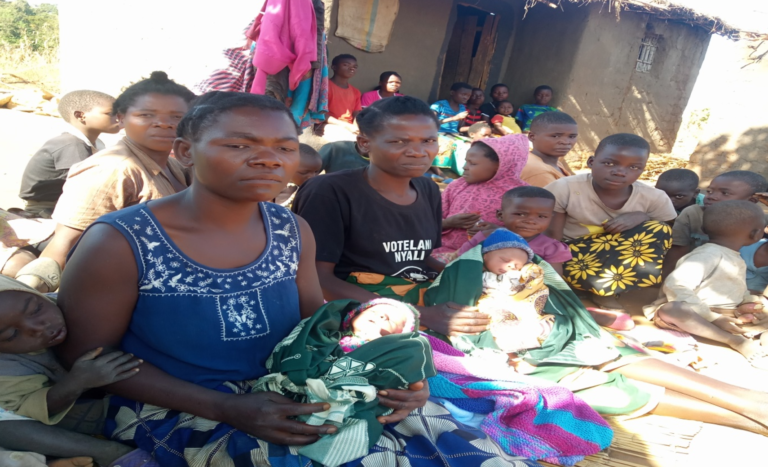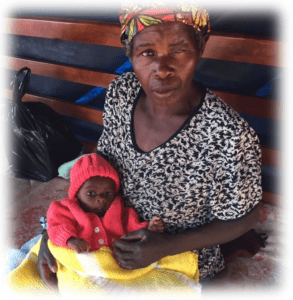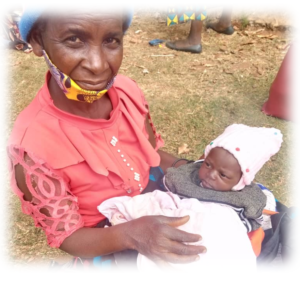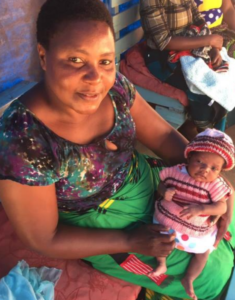In May nurses admitted 8 infants (3 orphans (includes a set of twins), 3 babies whose mothers were not producing breast milk, and 2 babies of critically ill mothers). One postpartum woman with a severe infection was admitted. Nurses visited a total of 221 mothers and infants over the course of the month and 558 tins of formula were distributed.
Baby Admission Story. Twin boys Chimwemwe and Chisomo were admitted this month into our program. Their mother was pregnant for the first time and attended her prenatal care clinic at the recommended intervals. Her rapidly enlarging belly signaled to the midwives that she was carrying twins and at 34 weeks she was sent to a rural hospital for an ultrasound. (Most women do not receive even a single ultrasound during their pregnancies.) Then, as is commonly done for high risk women, she was instructed to stay on the hospital grounds and await the delivery there.
[Few hospitals have adequate facilities to accommodate these pregnant women. Most often, women sleep in a room packed with mattresses – some on frames, some on the floor. Each woman’s small bag or cloth bulging with personal items sits at the head of her mattress. In some hospitals women are offered two basic meals of beans and rice or nsima daily; others will need to purchase food, cook, or wait for their relatives to bring meals. There is generally a communal toilet/shower for both pregnant and recently delivered women.]
After a bit more than a week her labor started. Staff at the rural hospital referred her to Kamuzu Central Hospital (the regional referral hospital) and there she delivered two premature boys. The babies were taken to the nursery to receive oxygen and initially their young mother hovered attentively over them. But, when she told a nurse that she was feeling dizzy, she was sent back to the labor ward. Before any further evaluation or intervention, she died. Her family was told that there was a shortage of blood and so she did not receive a needed transfusion. Family members were referred to Joyful Motherhood to support them in caring for the twins.
Almost half of the infants admitted into our program lost their mothers moments to days after their births. The death of a mother is an event which puts the life of her newborn in imminent danger. And tragically, so many of these deaths might have been prevented. The stories told by grieving mothers, sisters, and husbands often include a similar series of events. (1) Chimwemwe and Chisomo’s mother suffered from no pre-exiting health condition. (2) She followed medical advice – attending her prenatal care visits, waiting at a hospital to deliver (rather than risking delivery in a village hours away from potentially life-saving care). And, in her case, her delivery actually occurred in THE maternity referral hospital for the Central Region of Malawi; arguably one of the “safest” places to deliver in the country. (3) Tragically, even at the best hospital in the country, a death which should have been prevented was not. The chance of twin orphans dying prior to their first birthday in sub-Saharan African may be as high as 80%. Thankfully, with Joyful Motherhood, they now have more than a 96% chance of reaching their first birthday, but they will reach that milestone without ever knowing their mother’s embrace.
Please consider supporting our work in Malawi by making a donation today. Donate here.





